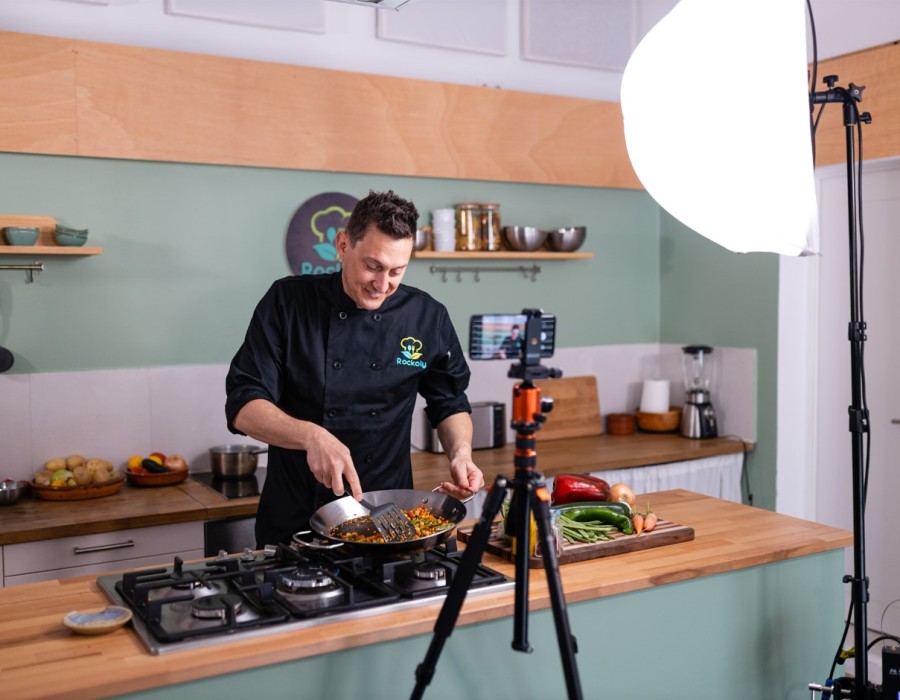In a world where employees are increasingly working remotely or in hybrid settings, finding innovative ways to engage teams and foster collaboration is crucial. Traditional team-building activities are effective, but something as simple yet enjoyable as cooking can unlock unique opportunities for connection and creativity. Cooking team building is quickly becoming one of the most popular choices for teams looking to build stronger relationships, improve communication, and enjoy a shared experience. Here’s why cooking can be a game-changer for team bonding.
Why Cooking is a Powerful Team-Building Activity
Cooking together isn’t just about preparing a meal—it’s a collaborative, creative experience that encourages teamwork. When team members come together to create a dish, they are essentially tasked with solving a problem, using creativity and communication to achieve a shared goal. Here’s why cooking activities are so effective for team building:
- Encourages Collaboration and Communication
- Cooking requires team members to communicate effectively to ensure the dish comes together perfectly. Whether it’s deciding on ingredients, delegating tasks, or troubleshooting a recipe, communication is key. In the kitchen, every team member needs to listen to others and express ideas clearly, building essential skills that directly translate into the workplace.
- Promotes Problem-Solving and Innovation
- In cooking, challenges can arise unexpectedly—whether it's missing ingredients or dealing with cooking equipment malfunctions. This encourages teams to think on their feet and find creative solutions. The same problem-solving approach can be applied to work situations, where innovation and adaptability are crucial to overcoming challenges.
- Fosters Creativity
- Cooking allows individuals to get creative with flavor combinations, dish presentations, and cooking techniques. Encouraging employees to think outside the box and contribute their ideas adds a fun and imaginative element to team-building. This not only boosts morale but also sparks new ways of thinking that can benefit the team long after the cooking event.
- Improves Trust and Relationship Building
- When cooking in teams, employees must trust each other to execute their tasks and rely on one another to achieve a delicious outcome. This trust-building environment is essential for creating stronger working relationships. By collaborating closely in a non-work-related context, employees can learn more about each other’s strengths and build deeper, more trusting connections.
Fun Cooking Team Building Activities to Try
There are many different cooking activities that teams can engage in, each designed to foster teamwork, creativity, and communication. Here are a few ideas for fun and engaging cooking team-building events:
1. Themed Cooking Challenge
In a themed cooking challenge, teams are given a specific cuisine or dish to recreate. It could be anything from a Mediterranean feast to an Asian street food adventure. This challenge encourages collaboration and lets teams tap into their culinary creativity.
Duration: 1.5 to 2 hours
Group Type: Small to medium teams
2. Cooking Relay Race
A cooking relay involves different team members completing various cooking tasks in succession—whether chopping, sautéing, or assembling the dish. The relay-style format adds a sense of fun and urgency, encouraging teams to work together efficiently while having a great time.
Duration: 1 hour
Group Type: Medium-sized teams
3. Bake-Off Showdown
A bake-off is a perfect way to inject some friendly competition into a team-building event. Teams can be tasked with baking a cake, cookies, or other baked goods, with the goal of creating something not only delicious but also visually appealing. A panel of judges (either within the team or external) can rate the creations, adding excitement to the activity.
Duration: 2 hours
Group Type: Small to medium teams
4. Cooking Class with a Professional Chef
For teams that want to elevate their culinary skills, a professional cooking class is a great way to learn new techniques while bonding over food. A chef-led class offers expert guidance, allowing teams to cook high-quality dishes while learning valuable skills that can be applied in the kitchen and beyond.
Duration: 2 hours
Group Type: Small to medium teams
5. Virtual Cooking Experience
For remote teams or hybrid teams, virtual cooking events provide an excellent way to engage with each other. Employees can cook from their own kitchens while following a live cooking class or challenge hosted online. These events offer the same benefits as in-person cooking activities but with the added flexibility of remote participation.
Duration: 1.5 hours
Group Type: Remote or hybrid teams
Conclusion
Cooking activities offer a refreshing and enjoyable way to enhance team dynamics. By focusing on collaboration, creativity, and problem-solving, cooking team building helps foster better communication, trust, and innovation among team members. Whether it’s preparing a challenging dish together, experimenting with new recipes, or participating in a friendly cooking competition, these activities are a fantastic way to bond and boost morale. Embrace the fun and benefits of cooking team building—your team will thank you for it.





Comments